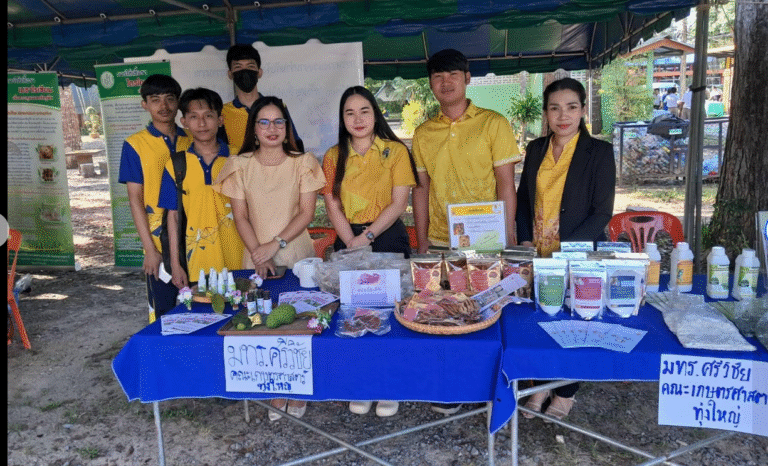Reporters : Mrs.Daowadol Sawatdilanon, Mr.Sumpudeng Meena, Mrs.Jutamat Chanchoei, Miss Natthakan Chansribut
Evidence Date : 14 – 16 June 2023, 20 December 2023
Related SDGs:
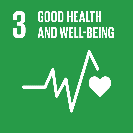
Indicators : 3.3.6
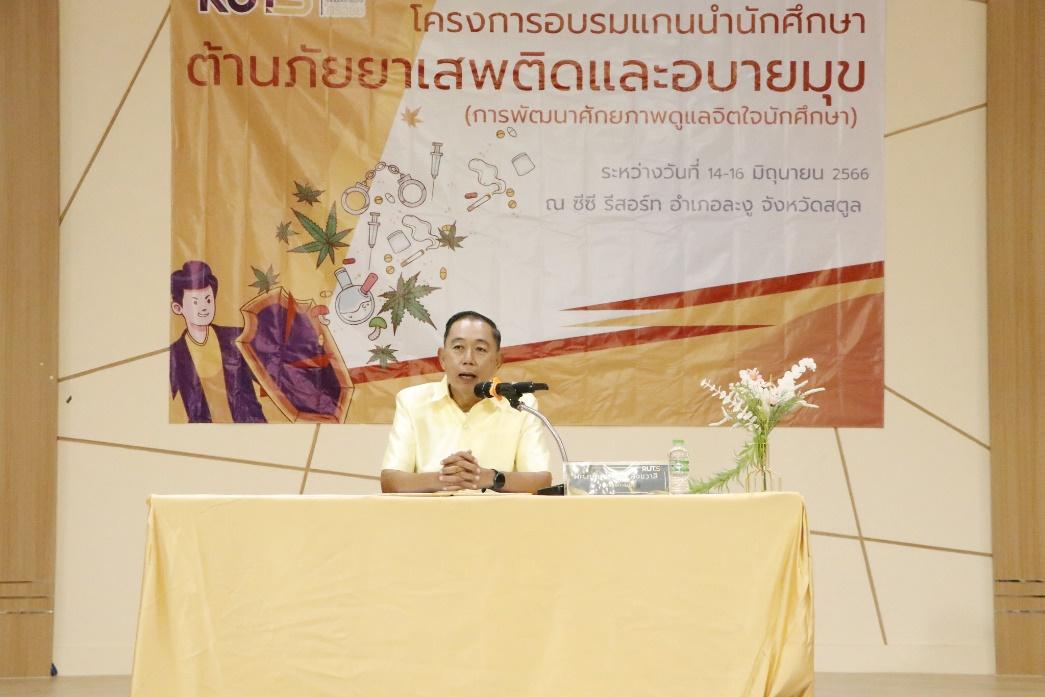
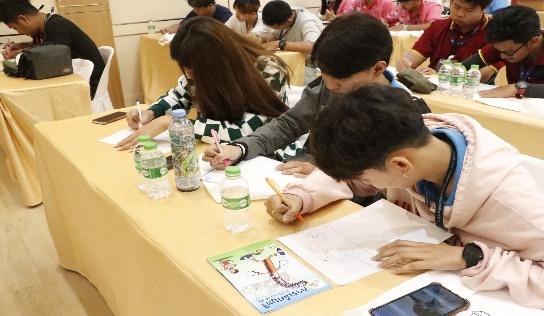
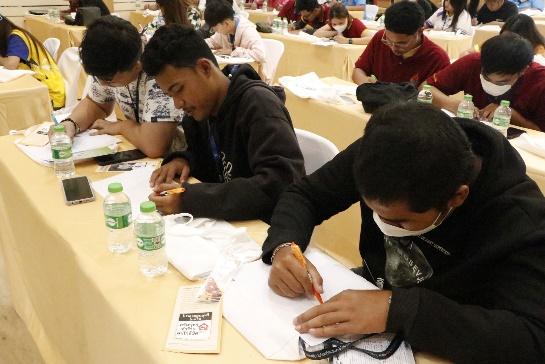
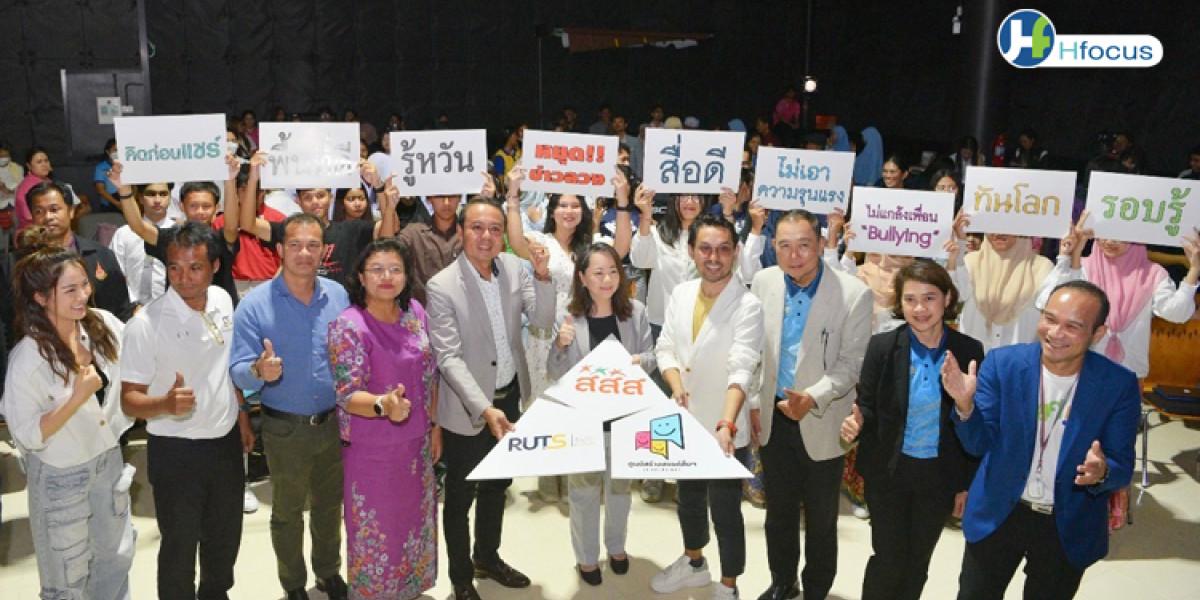
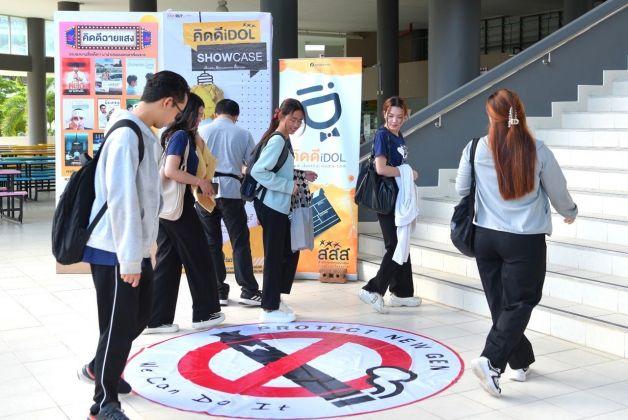
Rajamangala University of Technology Srivijaya, through the Student Development Division, organized a training project for student leaders to combat drug abuse and vice (developing students’ mental health capacity) from June 14 to 16, 2023, at CC Resort in Lan Khun District, Satun Province. The opening ceremony was presided over by Assoc. Prof. Krittanapong Sangkhwasi, the Vice President, and a team of lecturers from Mental Health Center 12 provided knowledge and practical training on mental health care for students and staff to stay away from drugs and vice.
As a higher education institution, the university has a primary responsibility to produce and develop skilled personnel with high quality, aligning with the university’s development strategy. It aims to create a modern management system to accommodate changes and enhance the quality of life in the community and region sustainably through innovation. The training also focuses on developing life skills for students in accordance with the operational standards of student affairs established by the Office of the Permanent Secretary of the Ministry of Higher Education, Science, Research, and Innovation in 2020. The mission involves fostering student discipline and behavior suitable for coexistence with others.
The objectives of this training are to enhance the mental health care capacity of students and staff, keeping them away from drugs and vice, and to create initial counselors to provide support.To support students and staff in strengthening their mental resilience against drug abuse and vice in educational institutions, this training involved 79 participants from various campuses and faculties, including 50 students and 29 staff members.To support students and staff in strengthening their mental resilience against drug abuse and vice in educational institutions, this training involved 79 participants from various campuses and faculties, including 50 students and 29 staff members.
Also for the second session was held on December 20, 2023, in collaboration with the Health Promotion Foundation, partnered with stakeholders to showcase health innovations crafted by Thai youth as part of the “Think Good Idol” curriculum. The initiative aims to promote safe and creative media use among youth across 10 provinces in 3 regions, contributing to a smoke-free society and reducing the use of e-cigarettes. The university signed a memorandum of understanding to establish a communication ecosystem that drives health promotion initiatives through the Creative Media Center for Youth and Families, and the Office for Promoting Media and Intellectual Health (Office 11).
This project seeks to develop a healthy media ecosystem by cultivating a new generation capable of using media as a tool for achieving better health. It also aims to open learning spaces for health communication practitioners, transforming them into quality social practitioners. By implementing the “Think Good Idol” curriculum, health communicators can empower students to become skilled users and creators of media, equipped with media and digital literacy (MIDL) for the 21st century, fostering health knowledge and intellectual well-being conducive to society.
The initiative aims to expand its reach among student leaders at the university with the support of SSS, targeting creative youth media creators in 10 provinces across 3 regions: Surat Thani, Krabi, Nakhon Si Thammarat, Songkhla, Yala, Pattani, Narathiwat, Phetchabun, Udon Thani, and Buriram. This will be done through the “Hackathon 4 Health” process, encouraging the younger generation to use media to drive social change. It will also inspire innovative health communicators who can address various health issues relevant to young people.
The “Think Good Idol” curriculum has established a nurturing process to discover new youth talent through the “Hackathon 4 Health,” utilizing tools like Lean Canvas to develop ideas that tackle health issues important to youth while aligning with local contextual problems. A total of 19 training sessions have been organized, attracting 1,132 interested participants aged 16 to 24. During the “Hackathon 4 Health,” which provides a limited timeframe for ideation, 73 teams expressed their interest across the 3 regions.
In the Hackathon process, the “Think Good Project” began by creating a health communication platform through brainstorming sessions within a limited timeframe. Participants identified health issues in their communities and sought solutions for developing health media tools. Activities were organized through various channels to reach target groups, with a defined timeframe and budget. Participants were required to pitch their health media ideas to a panel for selection.
The “Think Good Idol” curriculum aims to develop young people into health communicators by training them in effective thinking processes and creating high-quality media. A key focus is on fostering internal mental stability, which is essential for good communicators to value themselves before inspiring those around them. The initiative leverages the potential of young people, emphasizing collaboration with higher education institutions in mass communication, media studies, and civil society to create a health-promoting community.
This showcase of health innovations covers all four dimensions of well-being, including a mental health board game by the Yala Islamic Women’s Foundation, mental health tarot cards from the Thaksin University Seedling Club in Phatthalung, an online e-cigarette danger game by KPAOS at Krabi Municipality School, and educational materials on online gambling by the five group from Rajamangala University of Technology Srivijaya in Songkhla.
Related Links :
https://www.facebook.com/share/p/MvRLU9pkcoTp3YPT/
https://www.rmutsv.ac.th/ruts/2023/12/21/11698
https://www.js100.com/en/site/post_share/view/136024



